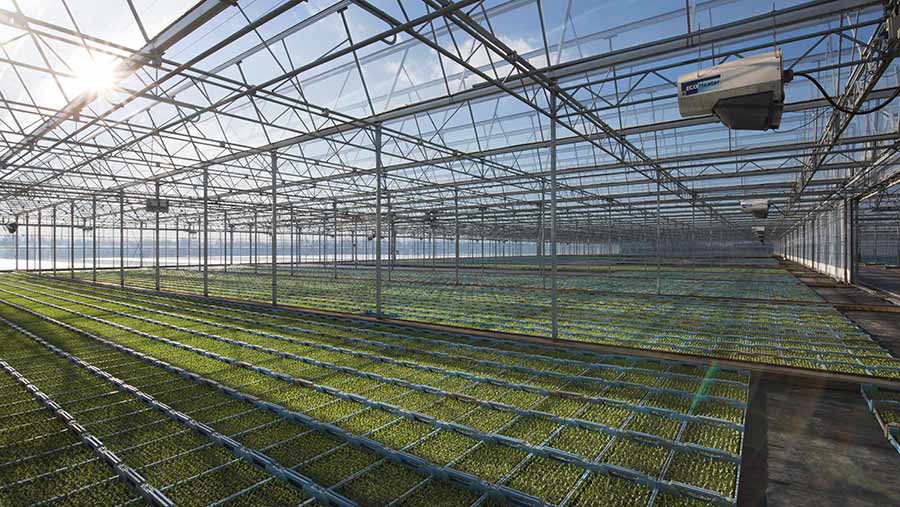Horticulture included in energy transformation fund
 © Tim Scrivener
© Tim Scrivener Horticultural businesses could benefit from reduced energy bills in 2024 after the sector was made eligible for the Industrial Energy Transformation Fund.
Defra has confirmed that it will be providing financial support to Controlled Environment Horticulture (CEH) businesses through the third phase of the fund.
The fund is designed to help businesses with high energy requirements cut their emissions and energy bills through investment in low carbon technologies and energy efficiency.
See also: Defra seeks fresh produce growers’ views on contractual fairness
Phase three of the fund will provide up to £185m in support and is due to open in January 2024, and the addition of horticulture to the list of eligible sectors follows has been welcomed by the NFU.
NFU president Minette Batters said: “The horticulture sector invests heavily in renewables and energy efficient systems, but sharply rising input costs over the past 18 months, particularly for energy, have put many businesses on a knife edge.
“We have repeatedly made the case that this is threatening the viability of many crops, including peppers, cucumbers, tomatoes, and those with long-term storage such as apples and potatoes.”
Mrs Batters added that the NFU is seeking urgent clarification on the eligibility for horticulture businesses and the process by which they can register for the fund.
Poultry excluded
Poultry businesses have once again been left out of the fund, despite lobbying efforts, and the NFU continues to call for its inclusion.
Mrs Batters said: “The NFU remains extremely disappointed over the lack of support for poultry production – another sector that is energy intensive where ongoing, soaring production costs are putting producers under immense pressure.
“We call on government to do everything it can so that the poultry sector is able to continue producing quality, affordable eggs and poultrymeat, which we know is valued hugely by the public.”
